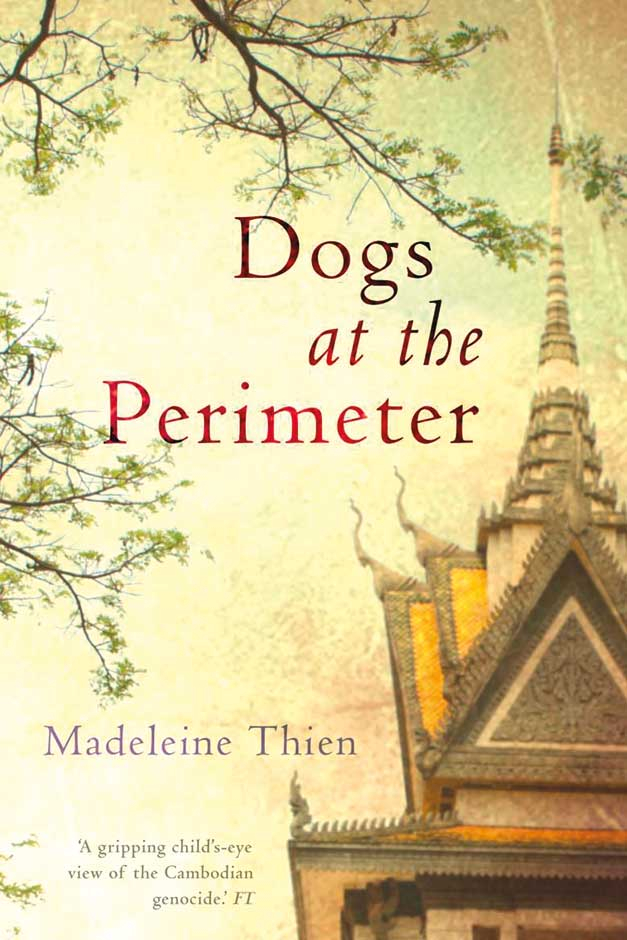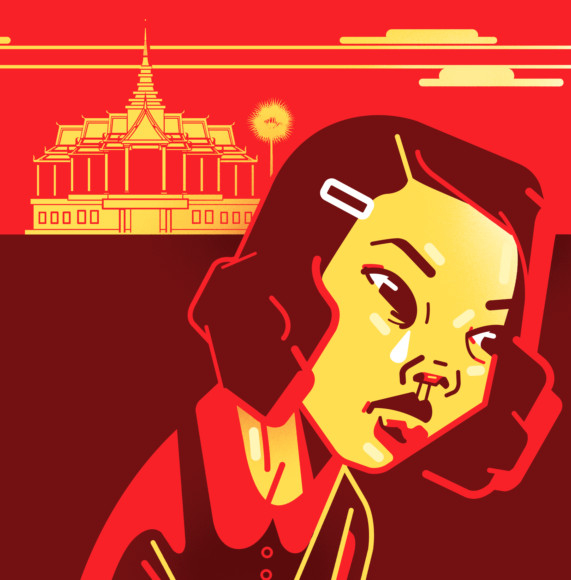By Madeleine Thien, Granta Books, 253 pages, $16
Borders are porous in Madeleine Thien’s novel Dogs at the Perimeter, both in the world and in the mind. The narrator is a neurological researcher whose carefully compartmentalised memories of her childhood in Cambodia living under the Khmer Rouge — the communist guerrillas whose reign of terror in the 1970s left an estimated 1.7 million dead — start to leak into her present day after a colleague disappears in search of a brother lost, like hers, in her home country.
Timelines converge; suddenly nothing separates the woman in a lab in Montreal, sharing with her son the beauty of a neuron “lithe as a starburst,” from the 8-year-old girl gazing up at a swarm of airplanes over Phnom Penh as the guerrillas close in.
To navigate the slippage in her mind, she turns to case studies of brain damage — a patient who “ceases to recognise faces, including her own,” and a sufferer of asomatognosia, unable to detect the physical boundaries of her body while “her thoughts continued, anchored to nothing.”
She recalls how, as a child in Phnom Penh, she gave all her dolls the same name: Vesna, after Vesna Vulovic, a Serbian flight attendant who survived a jetliner explosion in 1972, falling 33,000 feet over what was then Czechoslovakia. She even tapes a picture of Vesna — “like a drop of rain or a very tiny bird, someone whom the gods had overlooked” — to her wall when she arrives in Canada as a refugee, “ashamed that I had lived.”
Her own name, the name her parents gave her, is never revealed. Early on, a Khmer Rouge soldier urges her to “become someone else” and calls her Mei, an act of both erasure and protection, freeing her from the crimes of her educated parents. (“Families are a disease of the past,” says the Angkar, the Khmer Rouge leadership.)
Later, in a foster home in Canada, she is reborn again as Janie. Both names hover over her awkwardly, like aliases. Once, “in the temple schools, a new name had been a rite of passage, a bridge from one shore of life to the next,” she muses. Now, “names were empty syllables, signifying nothing, lost as easily as a suit of clothes, a brother or a sister, an entire world.”
The revision of history and the dismantling of the self under communism were central themes in Thien’s 2016 novel of the Cultural Revolution, Do Not Say We Have Nothing, which was shortlisted for the Man Booker Prize. Dogs at the Perimeter, first published in Canada in 2011, reads like a seed of the later novel: contrapuntal and elegiac in tone, with a white heat beneath. Where Do Not Say We Have Nothing is symphonic and expansive, Dogs at the Perimeter turns inward, to the workings of a mind in flight from itself.
Such are Thien’s gifts that she can write lyrically about horror without stripping it of force. When bombs fall on Phnom Penh, Janie registers her brother’s screaming as “a wide emptiness, a pressure in the air blinding me, and in the darkness I hear a strange, familiar ticking — insects, the typewriter, a clock counting time.” The hollowed-out bodies of refugees evoke “an exhumed cemetery.” A dying friend appears insubstantial, “as if the sea inside her had evaporated.”
A curious fact about the Khmer Rouge: Although they condemned anyone who could read or write — eyeglasses were evidence enough — they kept thousands of pages of files, and every citizen was required to write a record of his or her life, naming and implicating family and friends. In the end, these memoirs were used as confessions, of crimes real or imagined. (“If you act correctly, you are the enemy, if you act incorrectly, you are the enemy,” an officer says.) Janie’s little brother, anointed at age 9 as an interrogator, listens as a tortured prisoner admits to being a spy and describes an America he’s never seen, where people “lived on airplanes or underground, leaving the surface of the country empty as a sheet.” The lesson still haunts Janie: “that the story of one’s own life could not be trusted, that it could destroy you and all the people you loved.”
Four decades later, she must find another way to live with the past, to make room for her ghosts. Midway through the novel, she turns to the case of Lev Zasetsky, a Russian soldier who survived a shot to the head during the Second World War Battle of Smolensk. Despite losing the ability to process language, he managed to keep a diary that eventually surpassed 3,000 pages. “Each sentence required that he hunt through the disintegrated rooms of his memory, fumble blindly for words, the simplest words, hoarding them like gold dust until he had enough to construct a sentence,” Thien writes. Zasetsky’s doctor saw the diary as a way for his patient to not simply remember his life, but “make a wholeness of it.” For Janie, the hope is the same.
–New York Times News Service
Ligaya Mishan has written for the New York Review of Books and The New Yorker.











